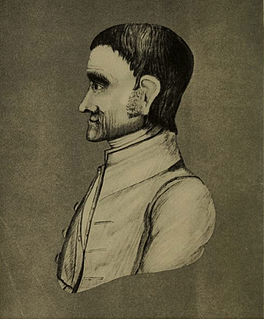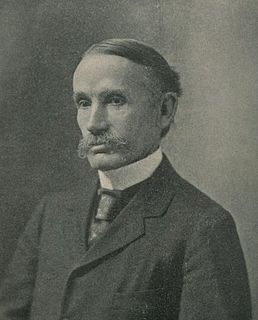A Quote by John Woolman
If a man successful in business expends a part of his income in things of no real use, while the poor employed by him pass through difficulties in getting the necessaries of life, this requires his serious attention.
Related Quotes
Of the seven days God gave to us in a week, He said to take six, and use them for our business. Yet we think that we must have the seventh as well. It is like someone who, while traveling, comes upon a poor man in distress. Having but seven shillings, the generous person gives the poor man six, but when the wretch scrambles to his feet, he follows his benefactor to knock him down and steal the seventh shilling from him.
Frank W. Woolworth once told me that the turning-point in his career did not come until he was thrown flat on his back by illness. He was sure that his business would go to pieces during his long, enforced absence. Instead, he discovered that he had in his employ men who could overcome difficulties when given power to exercise initiative. After that Woolworth left many problems and difficulties to be solved by subordinates and turned his attention to big things.
[Man] is the only animal who lives outside of himself, whose drive is in external things—property, houses, money, concepts of power. He lives in his cities and his factories, in his business and job and art. But having projected himself into these external complexities, he is them. His house, his automobile are a part of him and a large part of him. This is beautifully demonstrated by a thing doctors know—that when a man loses his possessions a very common result is sexual impotence.
When a man’s heart is cold and unconcerned about religion – when his hands are never employed in doing God’s work – when his feet are not familiar with God’s ways – when his tongue is seldom or never used in prayer and praise – when his eyes are blind to the beauty of the kingdom of heaven – when his mind is full of the world, and has no room for spiritual things – when these marks are to be found in a man the word of the Bible is the right word to use about him, and that word is, ‘Dead.’
What a wee little part of a person's life are his acts and his words! His real life is led in his head, and is known to none but himself. All day long, the mill of his brain is grinding, and his thoughts, not those of other things, are his history. These are his life, and they are not written. Everyday would make a whole book of 80,000 words -- 365 books a year. Biographies are but the clothes and buttons of the man -- the biography of the man himself cannot be written.
But what a feeling can come over a man just from seeing the things he believes in and hopes for symbolized in the concrete form of a man. In something that gives a focus to all the other things he knows to be real. Something that makes unseen things manifest and allows him to come to his hopes and dreams through his outer eye and through the touch and feel of his natural hand.
Observe your cat. It is difficult to surprise him. Why? Naturally his superior hearing is part of the answer, but not all of it. He moves well, using his senses fully. He is not preoccupied with irrelevancies. He's not thinking about his job or his image or his income tax. He is putting first things first, principally his physical security. Do likewise.





































